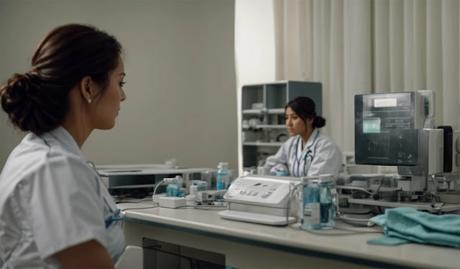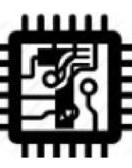In the fast-paced environment of healthcare, proper management of equipment is crucial for delivering high-quality care. Every piece of equipment, from MRI machines to infusion pumps, plays an integral role in patient treatment and outcome. A strong equipment management program ensures that these vital tools are available, functioning properly, and safe to use. Handling such resources with care also translates into cost-efficiency and compliance with regulations, which benefits the whole system. Below, we’ll take a closer look at the importance of equipment management in healthcare settings.
Understanding the Role of Equipment Management in Patient Safety
 The primary goal of healthcare services is to ensure patient safety and successful outcomes, and the role of robust equipment management in this context cannot be overstated. Reliable equipment is pivotal in diagnostic, monitoring, and treatment processes. Defective or improperly maintained medical devices can lead to misdiagnosis, delayed treatment, and even patient harm. Thus, rigorous management protocols are necessary to mitigate these risks.
The primary goal of healthcare services is to ensure patient safety and successful outcomes, and the role of robust equipment management in this context cannot be overstated. Reliable equipment is pivotal in diagnostic, monitoring, and treatment processes. Defective or improperly maintained medical devices can lead to misdiagnosis, delayed treatment, and even patient harm. Thus, rigorous management protocols are necessary to mitigate these risks.
Regular maintenance schedules, strict adherence to manufacturers' guidelines, and diligent record-keeping are the cornerstones of effective medical equipment management. These practices help identify potential malfunctions before they become critical issues. By staying ahead of equipment needs, healthcare providers can maintain a safe environment for both patients and staff.
Certifications and standards play a crucial role in guiding equipment management practices. Organizations like the ECRI Institute provide valuable resources and recommendations to ensure devices meet the highest safety standards. Their assessments are pivotal in helping healthcare facilities prioritize patient safety through proper equipment management. Learn more here: https://home.ecri.org/.
Streamlining Healthcare Operations Through Efficient Equipment Utilization
Efficient equipment utilization is essential for streamlining healthcare operations. Equipment that is well-managed is more likely to be in the right place at the right time, reducing delays in patient care. This optimal flow of operations not only improves patient satisfaction but also increases the productivity of healthcare professionals.
By understanding equipment usage patterns, healthcare facilities can make informed decisions about resource allocation. This process can help identify underutilized equipment that may be reallocated or repurposed, better meeting the facility's needs. Optimizing equipment usage can also extend the lifespan of devices, maximizing the healthcare investment.
Implementing digital tools for scheduling and tracking can enhance the transparency and coordination of equipment usage. These systems allow staff to quickly locate equipment, check availability, and reserve necessary devices, ensuring that resources are effectively shared and managed.
The Impact of Technology on Healthcare Equipment Lifecycle Management
Technological advancements have caused a significant impact on healthcare equipment lifecycle management. New software systems can automatically track maintenance schedules, warranty periods, and equipment obsolescence, leading to proactive rather than reactive management.
These innovations also contribute to better data collection regarding equipment performance and patient outcomes. With analytics, healthcare administrators can spot trends and make evidence-based decisions about when to repair, replace, or upgrade their medical devices.
Ultimately, the digital transformation in healthcare equipment management goes beyond mere maintenance. It embraces a holistic approach to managing the entire life cycle of medical devices, from acquisition to disposal, reinforcing the continuity and reliability of patient care.
Reducing Costs and Minimizing Waste with Effective Equipment Tracking
Cost reduction and waste minimization are key benefits of an effective equipment tracking system in healthcare. By maintaining a comprehensive inventory and understanding equipment conditions, healthcare facilities can avoid unnecessary purchases and costly emergency repairs.
Good tracking systems also help ensure that equipment is used to its full potential and retired responsibly. Instead of premature disposal, items can be refurbished, donated, or sold, promoting sustainable practices within the healthcare industry.
Lost or stolen equipment is a significant source of waste and financial strain. Implementing RFID tags, barcodes, or other tracking technology can mitigate these risks, leading to substantial savings and more responsible asset management.
Finally, by reducing equipment downtime through proactive management, facilities can also prevent revenue loss due to unavailable services. Keeping equipment in peak condition ensures continuous operation and can markedly improve a healthcare facility's financial health.
Overall, managing healthcare equipment effectively is a multifaceted challenge that requires ongoing attention and strategic planning. Proper management ensures safe practices, optimizes functionality, and enhances healthcare outcomes. With the right systems and processes in place, healthcare facilities can provide higher-quality care, maintain compliance, and operate more efficiently, all while controlling costs and minimizing waste.

